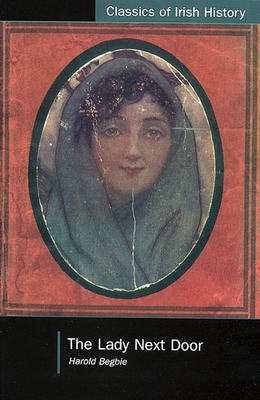The Lady Next Door
Ruaírí Ó Domhnaill reviews The Lady Next Door by Harold Begbie, UCD Press, Classics of Irish History, ISBN 1 904558 52 6, £14.95/€20 pbk

ORIGINALLY PUBLISHED in 1914, this reprint is part of an invaluable series produced by UCD Press, which also includes Johnston's seminal Civil War in Ulster (1913).
Begbie's work varies from interesting to engrossing and complements Johnston's academic approach.
In the later volume, Patrick Maume's Introduction deftly draws together political, religious and social themes into a brilliant overview of the period. His portrayals of the author and contributors add a fascinating breadth to the text.
Fifty years later, many elements of Begbie's Irish society were still in evidence, but his repeated affirmations of the total absence of Catholic intolerance make it difficult to not treat part of his account as hagiography.
His evidence is partly based on observation, interviews and informal discussions. His methods of respondent-selection are not explained.
The interview of the survivor of An Gorta Mór, is particularly interesting for the respondent's surprisingly rational analysis and acceptance of the landlords' position, although the presence of his bishop may have influenced him.
The friendly advances of a loquacious, inarticulate Catholic woman (reminiscent of an amorous Biddy Mulligan)probably amounted to Common Law assault. This contrasts with the next discourse, a clear, controlled, concise contribution of a dapper elderly Protestant businessman, who was attracted to Catholics but not to their "dogma" and who refers to Irish Protestant clergy as "the fools of the family." This interview is given similar space to that of William O'Brien. The input of Lord Dunraven is disappointing in view of the space he then commanded in The Times.
His impressions of Cork and Dublin may be rosier than those of many citizens. Indulging his florid style, the author's portrayal of a Dublin Capuchin seems longer than his account of the priest's exemplary work.
Conversely, his unflattering description of Belfast contradicts Lord Robert Cecil's (MP for Hitchin, Hertfordshire), declaration in the House of Commons 12th March 1914 that Dublin Corporation was "corrupt and incompetent" while Belfast Corporation was "pure and efficient."
The author displays a strong affinity with Arcadianism, which was then endemic in England. This undoubtedly affected his vivid report of Belfast's appalling living and working conditions and wages. However, his account was thoroughly supported at the time by the Ulster Guardian.
Ironically in Conclusions, as the author builds a powerful case, he introduces a misplaced assault on "suffragettes" and attempts to justify it with appeals to unspecified elements of Christ's law and the laws of nature.
The final pages are a tour de force, in which Begbie rounds on his critics and on the religious politics and bigotry of Belfast.
Connolly Association, c/o RMT, Unity House, 39 Chalton Street, London, NW1 1JD
Copyright © 2006 Ruaírí Ó Domhnaill

